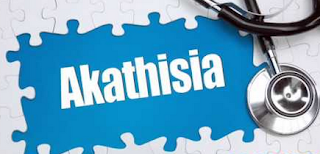Akathisia disease
Akathisia is one form of extrapyramidal symptoms (one of the neural parts of the brain that regulates movement), which is characterized by a rowdy condition and cannot be silent. The word Akathisia comes from the Greek, the anathema which means that it cannot be Sit still.
Most cases of akathisia are a side effect of the consumption of antipsychotic drugs used to treat schizophrenia disorders and some other types of mental disorders.
Based on the length of occurrence, akathisia consists of three types, namely:
- Acute Akathisia, which is Akathisia that occurs immediately after a person taking anti-psychotic drugs, but the symptoms take place in less than six months.
- The chronic Akathisia, Akathisia, lasts for more than six months.
- Tardive akathisia, which is an ongoing akathisia although the sufferer is not taking antipsychotic drugs anymore.
Causes of Akathisia
The mechanisms of akathisia are not fully medically explained. However, it has been known that the occurrence of akathisia relates to the side effects of antipsychotic drugs.
In general, there are two main types of antipsychotic drugs, namely anti-psychotic old generation (often called typical anti-psychotic) and the anti-psychotic new generation (often called atypical antipsychotics).
Long-generation antipsychotic use is known to be more susceptible to causing akathisia compared to the new generation. The long-generation anti-psychotic examples are chlorpromazine and haloperidol. However, some of the new generation anti-psychotic types (e.g. risperidone, olanzapine, and quetiapine) can also cause akathisia, although the risks are smaller.
Nevertheless, it does not mean that anyone who consumes anti-psychotic drugs will experience akathisia. The risk of akathisia is mainly experienced by those who consume anti-psychotics with the following conditions:
- Aged 40 years and above
- Taking antipsychotic drugs in high doses
- Get an increase in antipsychotic dosages in quick time
- People with brain disorders such as Parkinson's, a history of head injuries, or inflammation of the brain (encephalitis)
Akathisia Diagnosis
At the initial examination to determine the diagnosis of akathisia, the doctor will conduct a full interview on the symptoms experienced and medications consumed during this time. Then in the examination, the doctor will also observe the movements of the patient during the examination.
If necessary, blood screening is also sometimes done to ensure that the patient's complaint is not caused by other diseases.
Symptoms of Akathisia
Akathisia sufferers are constantly nervous and always moving all the time. They realized that he twitching continued. They wanted to stop the movements, but could not.
In addition to repetitive movements, usually, akathisia sufferers tend to look anxious and irritable without obvious reasons.
The symptoms of akathisia are sometimes difficult to distinguish from other extrapyramidal disorders, namely dyskinesia. Both Akathisia and dyskinesia tardive both have symptoms of the onset of uncontrollable movements all the time. But the distinguishing thing is the dominant part of the body moving.
In Akathisia, the twitching is the limbs and legs area. In Dyskinesia Dyskinesia, the areas of the face and arms are moving more frequently.
Also, Akathisia usually realizes that her body is moving but she can't control it. Meanwhile, dyskinesia tardive sufferers are generally unaware that there is a body part that is moving uncontrollably.
The movements performed by Akathisia sufferers can vary in form, but the most commonly done are:
- Straining the floor repeatedly
- Move the body forward and backward the mat stand or sit
- Walk-in place
- Crossed the legs (right limbs over the left leg, then the left leg above the right leg) while sitting
- Aimlessly paced, clear
Akathisia Treatment
In the treatment of Akathisia, the first and foremost thing to do is to know the drug causes akathisia. As much as possible, the drug will be gradually lowered, while replacing its medication with other drugs that are less likely to cause akathisia.
Also, doctors will generally provide a benzodiazepine medication to relieve the anxiety experienced, as well as medications to lower blood pressure. Blood pressure-lowering drugs in this condition are given to relieve the symptoms of patients.
Prevention of Akathisia
Akathisia cannot be prevented completely. But to minimize the likelihood of experiencing akathisia, those who take antipsychotic drugs are advised to consult a physician to change the dose or type of drug. Follow the advice and instructions for drug use from psychiatrists.
